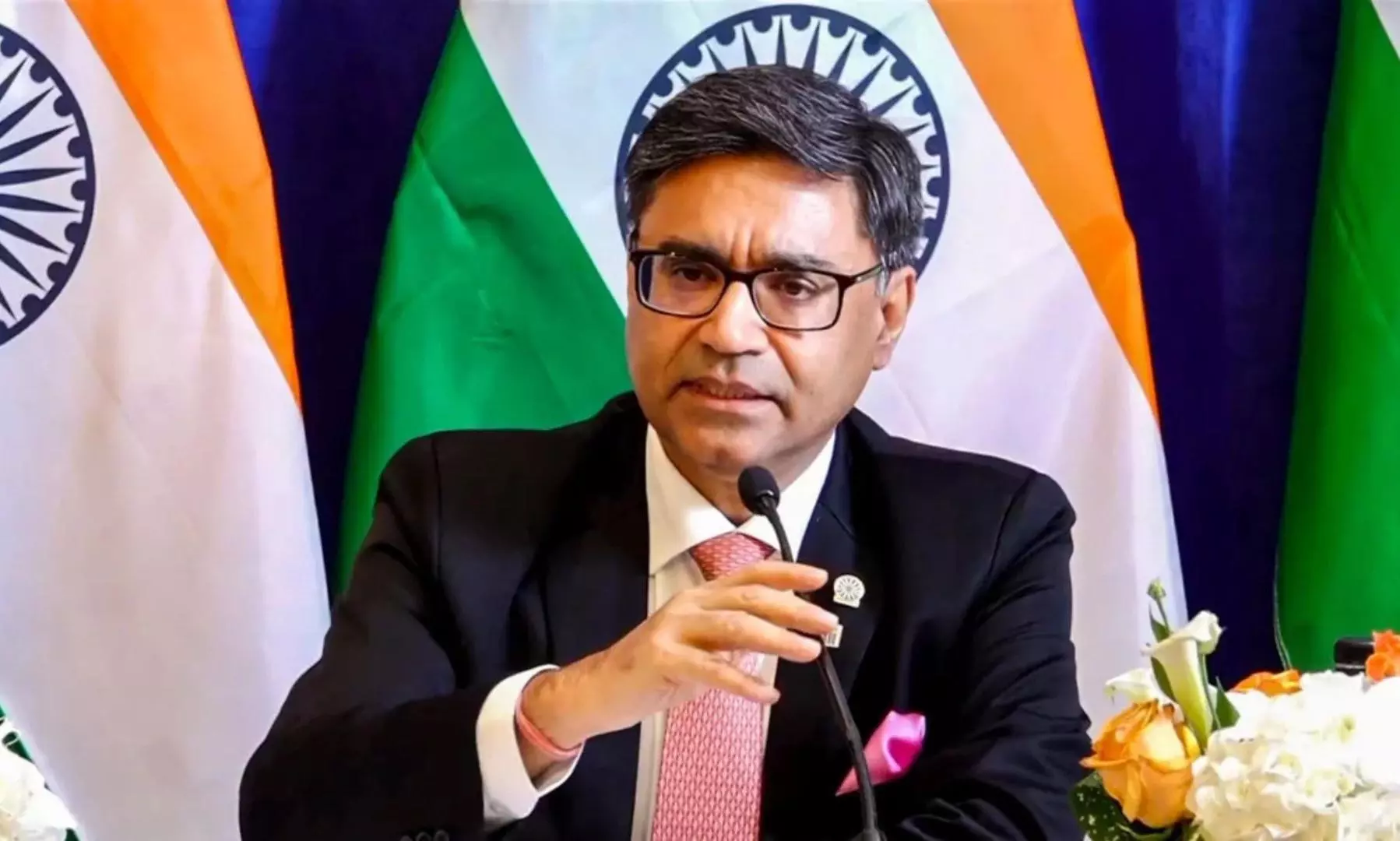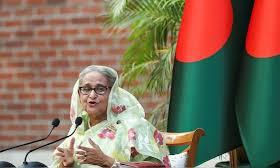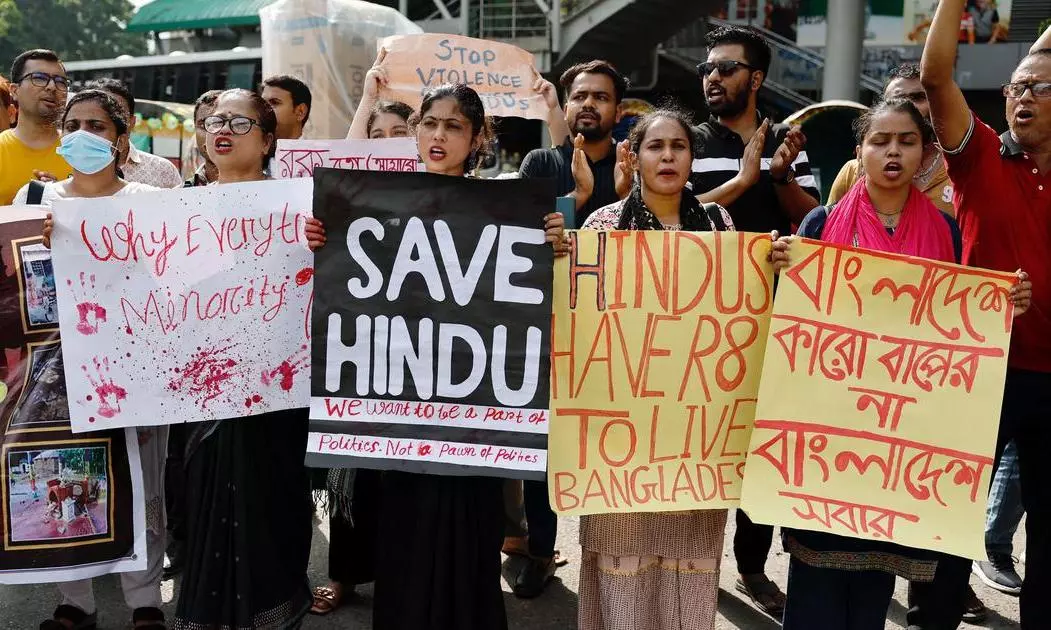
India does not endorse Hasina’s criticism on interim govt: Vikram Misri
text_fieldsNew Delhi: Addressing the Parliamentary Standing Committee on External Affairs, chaired by Congress leader Shashi Tharoor, Foreign Secretary Vikram Misri on Wednesday stated that India does not support the criticisms made by former Bangladeshi Prime Minister Sheikh Hasina against the interim government in Dhaka. He noted that while this issue has caused minor friction, it does not overshadow the overall strength of India-Bangladesh relations. Misri further emphasized that India's relationship with Bangladesh is not confined to any single political party but is based on a broader engagement with the people of Bangladesh.
He also clarified that Hasina had been using "private communication devices" to make her comments and that the Government of India was not involved in providing her with any platform or facility that enabled her to carry out her political activities on Indian soil. This, he stated, was in line with India’s longstanding policy of avoiding interference in the internal matters of other countries.
The Foreign Secretary's remarks were significant, as Hasina had been making video messages criticizing the interim government in Bangladesh, led by Chief Adviser Muhammad Yunus, after her resignation and departure from Bangladesh in August 2024.
Misri informed the committee that during his visit to Dhaka on December 9, he communicated to the interim government that India’s relationship with Bangladesh transcends "a particular political party" or government. He stressed that India prioritized its relationship with the people of Bangladesh and would engage with the current government, regardless of political affiliation.
In his briefing, Misri conveyed India’s concerns regarding "regrettable incidents" in Bangladesh, especially violence against minority communities. He acknowledged that Bangladesh is India's largest trade and connectivity partner in South Asia, citing recent developments such as rail, bus, and inland waterways links between the two countries. However, he noted that passenger rail services between the two nations remain "suspended."
The Foreign Secretary expressed concern about the lack of acknowledgment regarding the incidents of violence against religious minorities. Nevertheless, he welcomed the report that Bangladeshi authorities had arrested 88 individuals in connection with these incidents following the collapse of Hasina’s government.
He also pointed out that the relationship between the two countries had improved after his visit. Both sides discussed their concerns, with India voicing its worry about Bangladesh’s decision to release several convicted “terrorists” who have engaged in anti-India rhetoric. On the other hand, the Bangladesh authorities raised concerns over what they called a "disinformation" campaign in the Indian press regarding events in Bangladesh.
Regarding the recent arrests of ISKCON monks in Bangladesh, several committee members raised the issue. However, sources suggest that Misri did not respond directly to this matter. He did, however, inform the committee that during his visit to Dhaka, he urged the authorities there to acknowledge the incidents involving attacks on Hindu temples and the Indira Gandhi Cultural Centre.
Misri informed the committee that Bangladeshi authorities had begun addressing the attacks on religious minorities following his discussions in Dhaka. He noted that the situation appeared to be improving, though Dhaka expressed dissatisfaction with what it called an exaggerated media narrative in India. Following his discussions, the press secretary to the Chief Adviser, Rafiqul Alam, held a press conference to announce the number of arrests made in connection with the attacks on minority groups.
Misri also pointed out that some justifications for the attacks had been based on the fact that they targeted activists of the Awami League, the former ruling party in Bangladesh. He clarified that such justifications could not "justify" the attacks.
During his visit, he met with Foreign Affairs Adviser Touhid Hossein, Foreign Secretary Mohammad Jashim Uddin, and Chief Adviser Yunus. He emphasized the need for a "democratic, peaceful, stable, and inclusive" Bangladesh.

























